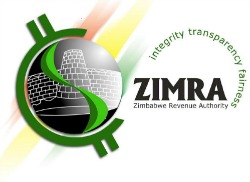President ’s rural industrialisation masterstroke transforms lives

Kuda Bwititi
Zimpapers Elections Desk
LIFE will never be the same for Headman Solomon Mbuyamaswa and 67 others from his village in Zaka Central Constituency, Masvingo Province.
The village has become a beneficiary of President Mnangagwa’s game-changing rural industrialisation vision that is uplifting people’s livelihoods.
Headman Mbuyamaswa is spearheading a horticulture project, which has now turned into a fully-fledged business enterprise, after benefiting from a solar-powered borehole that was drilled under the Presidential borehole programme.
“We have set up our company under the name Mbuyamaswa Village Business Unit. Currently, we have cabbages and other vegetables in our gardens, which we are expecting to sell at the end of this month. Our bank, AFC, has already promised to give us a loan to expand our operations to purchase irrigation pipes to enable us to grow more cash crops.
“Our lives will never be the same again, as all 68 of us will be getting monthly income from this project,” he said.
Under President Mnangagwa’s 2030 Rural Industrialisation Agenda, which is part of Vision 2030, all of Zimbabwe’s 35 000 villages are set to undergo massive transformation as the Second Republic has started implementing a new model of rural development, that will lead to modernisation of villages and change people’s lives in a big way.
The programme is anchored on creating agriculture value chains through horticulture, aquaculture and commercial livestock rearing to boost rural industrialisation.
Under the transformative model, solar-powered boreholes will be set up in each of the 35 000 villages countrywide, for people to have water available throughout the year.
In addition, each village is expected to have a fully registered company, whose members will be able to earn a monthly income.
Headman Mbuyamaswa and his shareholders met President Mnangagwa on Sunday, at the hugely subscribed Zanu PF Star Rally at Chinorumba High School in Zaka, Masvingo province, as they showcased the progress they have made so far.
Speaking at the rally, Lands, Agriculture, Fisheries, Water and Rural Development (LAFWRD) Minister Dr Anxious Masuka explained the nuts and bolts of the model, on behalf of President Mnangagwa.
“The President has sent me to tell you that under Vision 2030, we have 35 000 villages. Each of these villages must have solar-powered irrigation and electricity. Also, each village will have a registered company. One of the first villages to have such a company is the Mbuyamaswa Village Business Unit Cooperative, under Headman Mbuyamaswa village, here in Zaka.
“This company will have Pfumvudza plots, from where they will generate monthly income. They will also have horticulture projects. The headman will be chairperson of the company. The members of the village will be shareholders. This is the development that we are undertaking, under President Mnangagwa,” he said.
Dr Masuka said under the model, villagers will also be working with banks.
“They will all be able to open bank accounts and get loans. In these bank accounts, they will be able to receive monthly incomes. Members of Mbuyamaswa village already have their bank cards and have started to earn an income,” he said.
In an interview, LAFWRD Deputy Minister Davis Marapira gave further insights on the mechanics of the model.
“This is part of the Rural Industrialisation Programme, where the President wants people to achieve an upper middle income status by 2030.
“Villagers already have the land, so the President came in to say, I will provide you with water, through solar-powered boreholes, that he wants installed in each of the 35 000 villages that we have in this country. So when we have the land and water, we now need expertise, and the Agriculture Rural Development Authority (ARDA) and the Agriculture Marketing Authority (AMA) have been roped in to assist the farmers,” he said.
According to Deputy Minister Marapira, who is also Zanu PF aspiring National Assembly candidate for Zaka Central, communal farmers can make substantial income, running into thousands of dollars per month from the initiative.
“For example, if a village sets up an aquaculture project, they can begin with 8 000 fingerlings, which need about six months to be taken to the market as fish. The cost of 8 000 fish is about US$32 000, which is massive income at village level. They can also embark on cash crops such as tomatoes and cabbages. In Zaka, there are farmers that are growing chillies for export because the climate is conducive. The vision is to also have fruit trees like citrus, which are of export quality, being produced at the village level. Such initiatives will lift villages out of poverty for good,” he said.
“Once we have achieved production, we want to have factories, for example, in Zaka there is a plan to have the Jerera Fish Industry Centre, where value addition will take place and lots of jobs can be created. So the wheels for rural industrialisation are indeed very much in motion and we expect that while we have 70 percent of people living in rural areas currently, the numbers will increase to 90 percent, as Vision 2030 moves into top gear,” added Deputy Minister Marapira.
Headman Mbuyamaswa and his 67 shareholders will soon be smiling all the way to the bank, as they have already secured markets for their produce.
He was brimming with joy, as he looked forward to the success ahead.
“The sky is the limit for our company. We don’t know just how much we can thank President Mnangagwa for this initiative. The only way to thank him is to vote for him on August 23,” the village head said.










Comments